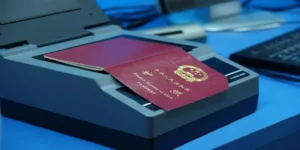Today, we are living in an era of technology. We are shifting from the traditional paperwork style to modern computer chips. Previously, we had registers and logs with several thousands of pages filled with records. It was hard to search for information in this mountain of paper. Today, we have a finger sized, or even smaller, USB devices that can store data equivalent to thousands of paper registers. Passports are also on the verge of change, and the bio-metric passport has made passport scanner a tool that everyone should have in their pocket.
Biometric passports
Biometric passports, also known as e-passports or digital passports, are being given to people today on a wide scale. It is actually a combination of paper and electronic information. It has the paper information that you can see on any traditional passport with an additional computerized chip that allows passport scanners to read the information hidden in it. These are used to identify and authenticate traveler’s IDs and regulate their movement. The chip is similar to the technology we use in smart cards.
The antenna and microprocessor allow you to have communication with the database and identify the user. The International Civil Aviation Organization stores the documentation and they are the ones regulating this process. With the help of Public Key Infrastructure, they authorize the data in your electronic chip. At one side, it makes the expensive process while on the other side it also makes it hard to forge. If you are able to implement it appropriately, it is really hard for someone to bypass the security.
Systems of recognition used in biometric passports
There are three basic identification types used in these passports. Once you have the data, you can make a person sit in front of your camera or scanner and authenticate him through facial recognition, fingerprint or iris. All three are popular methods, and it is proven that almost everyone has a different feature considering the recognition ways. Usually, it is the digital image that authorities scan to identify the traveler which is available to them in the chip in JPEG or JPEG2000 format.
Biometric passport and role of Scanner in its working
When traveling, a passport scanner you must meet is the one made by Lintech. They have provided many features in it allowing a user to see what information is present in his or her passport.
Consider a traditional passport and a passport scanner. What you can do and how you can extract the information? All you do is that you put the paper with information in your scanner which inputs the information into your computer. Then, through the e-border control system, you can check for the authentication and cross check the security features before allowing the traveler to pass.
However, the e-passport, along with the special scanner, allows you a bit more control. All you need to do is put the chip in front of scanner which will read it and display optical data recognition along with a page to check the data authentication of the traveler. From there, you can gather the information, and with the help of a fingerprint, facial, or iris recognition system, you can proceed with biometric verification. From there, you will have the validation of the document and can also see whether the user is blacklisted or not.
Why you need an appropriate scanner?
Lintech has been manufacturing the magnetic readers for a while, and they have experience in manufacturing such devices. Their passport scanner is just another example of how remarkable their devices are. Now, coming towards the point that why you need a good scanner? Why just a random magnetic reader won’t do the job for you? Well, we all know that the Passport authentication is a critical process. It helps in the prevention of unauthorized and unwanted access to a person to your country. Any random magnetic reader won’t be good as they are usually designed for general purpose and do not have the ability to check for the minor and slight errors. Whereas the special scanners dedicated to passports only will check it from every angle and every aspect before passing it.








